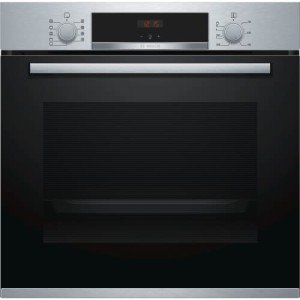Five Killer Quora Answers To Builtin Oven
페이지 정보

본문
The Comprehensive Guide to Built-In Ovens: Features, Benefits, and FAQs
Built-in ovens are a popular choice for modern kitchens, using versatility, performance, and a smooth design that incorporates perfectly into cabinetry. This post will explore the different elements of built in ovens uk-in ovens, including their features, advantages, installation alternatives, upkeep suggestions, and responses to commonly asked questions.
What is a Built-In Oven?
A built-in oven is developed to be set up within kitchen cabinetry and is offered in different configurations, such as single or double ovens. Unlike freestanding ovens, built-in models supply a streamlined appearance and use more flexibility in kitchen style. They come in electric, gas, and steam choices, catering to a range of cooking preferences.

Functions of Built-In Ovens
Built-in ovens are packed with functions that boost cooking experiences. Here are some of the most typical functions to think about:
| Feature | Description |
|---|---|
| Self-Cleaning | Numerous models consist of a self-cleaning function that burns off residue at high temperature levels, streamlining maintenance. |
| Convection Cooking | This function utilizes a fan to flow hot air, cooking food more uniformly and rapidly. |
| Smart Technology | Some ovens come geared up with Wi-Fi connectivity, enabling users to manage the oven remotely through mobile phone. |
| Multiple Cooking Modes | Consist of options such as baking, broiling, roasting, and air frying, providing versatility for different meals. |
| Temperature level Probe | Keeps track of the internal temperature of food, ensuring perfectly prepared meals whenever. |
| Sleek Design Options | Available in different surfaces (stainless steel, black, white) to match kitchen decoration. |
Advantages of Built-In Ovens
The installation of a built-in oven brings many advantages to any kitchen:
- Space Efficiency: Built-in ovens make the most of kitchen space, supplying a tidy and organized appearance without compromising functionality.
- Improved Cooking Performance: With advanced features like convection cooking and accurate temperature level controls, built-in ovens frequently exceed traditional models.
- Design Flexibility: These ovens can be set up at eye level, permitting for simple gain access to without bending down, which can be specifically helpful for individuals with physical limitations.
- Enhanced Resale Value: A properly designed kitchen with top quality built-in appliances might interest prospective purchasers, enhancing overall home worth.
- Modification Options: Many brands offer adjustable styles that fit the particular measurements and visual of individual kitchens.
Installation Options
When choosing a built-in oven, understanding the installation choices is important. Here are the most typical setups:
Single Built-In Builtin oven: Ideal for smaller cooking areas, these systems provide sufficient space to prepare a variety of meals concurrently, ideal for daily cooking.
Double Built-In Oven: Best fit for passionate cooks and large households, double ovens enable for simultaneous cooking at 2 various temperatures, suitable for meals that need diverse cooking approaches.
Combination Steam and Oven: A hybrid service that combines the advantages of traditional baking with steam cooking. This option is outstanding for keeping moisture in foods, making it best for baking bread or roasting meats.
Maintenance Tips for Built-In Ovens
Maintaining a built-in oven is important for its durability and optimal efficiency. Here are some useful maintenance pointers:
Regular Cleaning: Use the self-cleaning feature when required, and wipe down the outside and interior surface areas routinely to prevent grease buildup.
Inspect the Seals: Inspect the oven door seals for any wear or damage to ensure proper insulation and cooking performance.
Temperature Calibration: Occasionally check the temperature precision using an oven thermometer, particularly if cooking times appear longer than usual.
Ventilation: Ensure adequate ventilation around the oven to prevent overheating, specifically for built-in designs that might be surrounded by kitchen cabinetry.
Frequently Asked Questions About Built-In Ovens
1. Are built-in ovens more expensive than freestanding models?Yes, built-in ovens tend to be more expensive due to their style, installation requirements, and Builtin oven additional features. Nevertheless, their benefits can justify the cost in the long run.
2. Can you set up a built-in fitted oven yourself?While some convenient people may try to install a built-in oven, it is recommended to employ an expert to ensure correct installation, ventilation, and security requirements.
3. What is the typical life-span of a built-in oven?The common life-span of a built-in oven is around 10 to 15 years, depending upon use and upkeep. Routine care can assist extend its durability.
4. Are built-in ovens energy efficient?Numerous modern built-in ovens are designed with energy performance in mind, incorporating functions like insulation and accurate temperature controls that might lower energy usage compared to older models.
5. Can a built-in oven be fixed if it breaks?Yes, built-in ovens can frequently be repaired. It is recommended to get in touch with a certified service technician for medical diagnoses and repairs to make sure security and compliance with service warranty contracts.
Built-in ovens are an exceptional addition to any modern kitchen, supplying a mix of style, performance, and advanced cooking features. With the best knowledge about their features, benefits, and maintenance, house owners can make educated options to enhance their cooking experiences. As kitchen style patterns continue to develop, the built-in oven stays a staple for those looking to mix aesthetics with performance in their cooking areas.

- 이전글이버멕틴 구매대행 방법과 복용법: 알아두어야 할 모든 것 - 러시아 직구 우라몰 ula24.top 25.05.11
- 다음글A Look Into The Future What's The Adhd Assessment For Adults Industry Look Like In 10 Years? 25.05.11
댓글목록
등록된 댓글이 없습니다.
